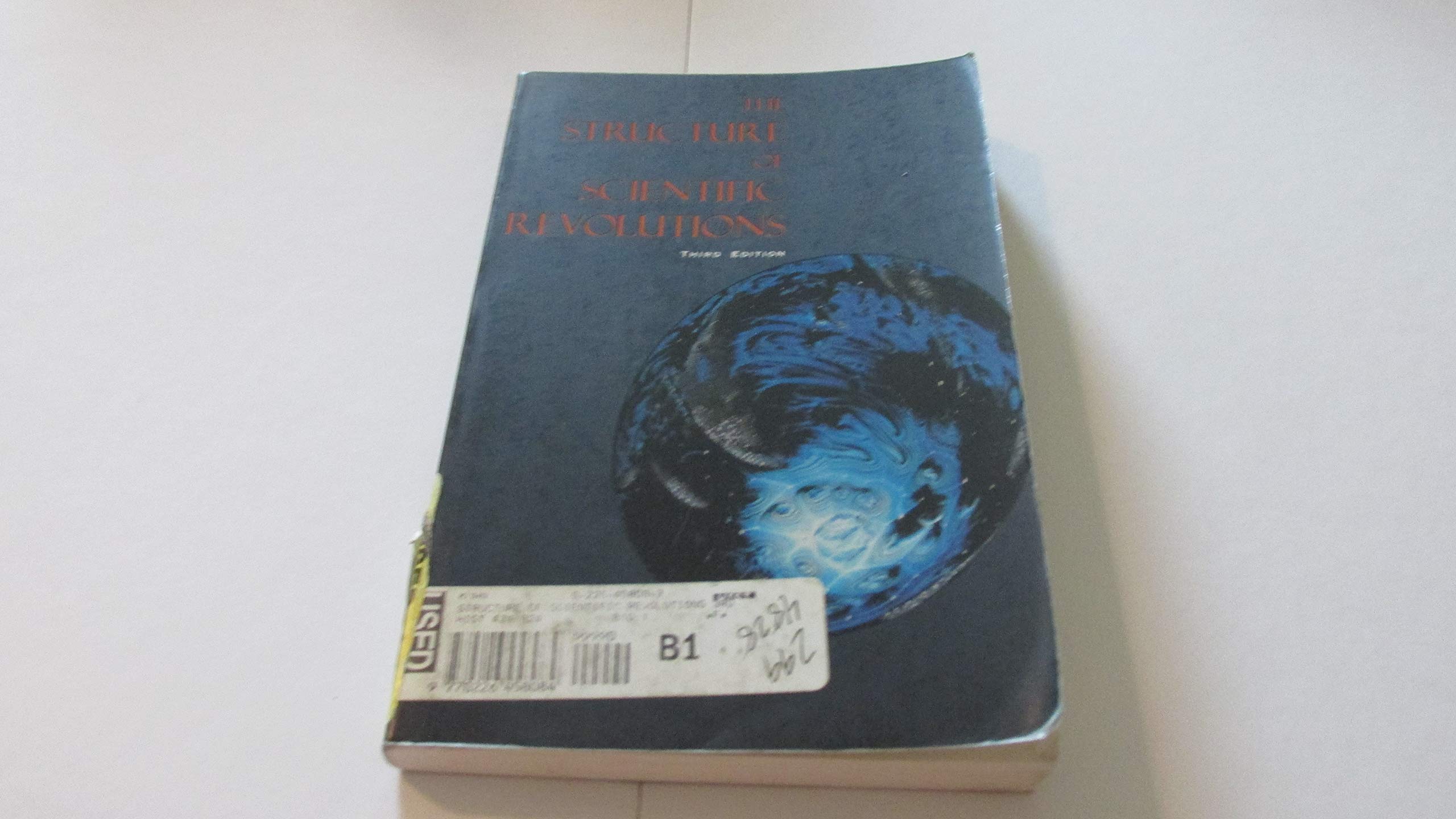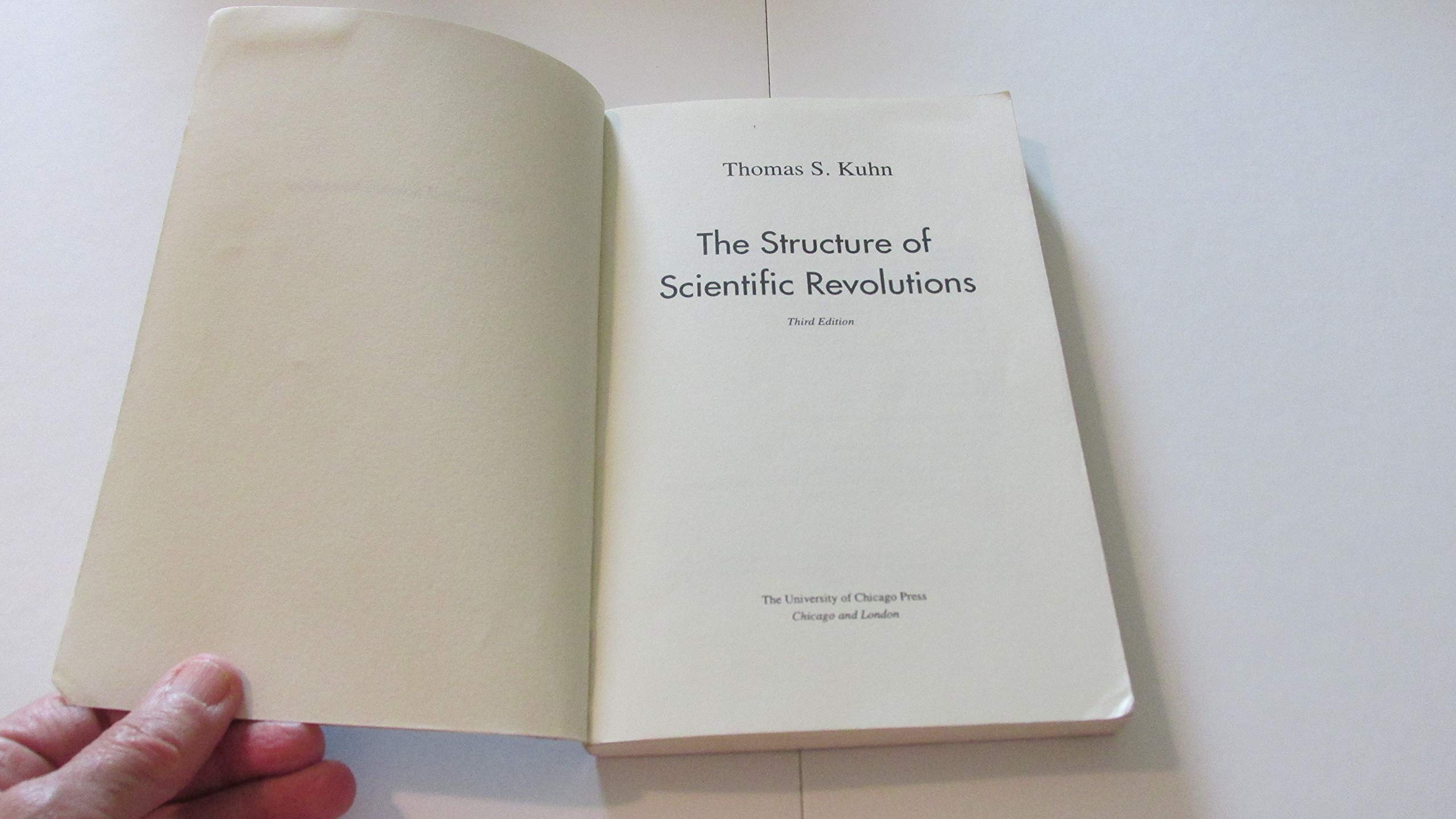






The Structure of Scientific Revolutions 3e
J**G
Unforgettable book
This is one of the best books I’ve read
R**R
Book
Average paper quality. Great content.
G**S
A key book
An essential book - replaces missing-in-libray copy
N**B
Four Stars
Good stuff
H**Y
Five Stars
The price was amazing and The quailty was great :) thank you
A**R
Interesting
This book is motivated by how we write the history of science. Descriptive theory. Are there any prescriptive insights here? Perhaps, but not anything that struck me as particularly useful.
R**Y
Psychologically astute, politically naive
I first read this book some forty years ago and was impressed by how Kuhn incorporated aspects of psychology into the history of scientific findings. He introduced the idea of paradigm shifts and the whole way in which scientific knowledge is achieved is more in the realm of psychological crisis than reason. He argued that theories are often clung on to way past their sell-by date, and only let go of reluctantly, when new evidence has built up to debunk them in favour of a new theory.The reason for my three stars, is that Kuhn does not fully account for what has happened in the last forty years. The arrival of political influence on science, through state sponsored scientific programmes, has made a mockery of a principled approach to science. This is evident in the over reliance on scientific models that vary significantly from actual data, the controversy over the scientific basis of ‘man-made climate change’ is one such example.Kuhn’s arguments led to a significant attack on the nature of science by political opportunists. These same opportunists then wanted to redefine science and use it to their own advantage. Once weakened by Kuhn’s philosophical assault, science became vulnerable to those with political motivation, who now use it as a weapon. It is common to hear phrases such as ‘scientists believe’ or ‘scientifically proven’ by lay people wishing to come across as authority figures.Both human psychology and politics have affected the once truthful goals of science and Kuhn certainly got one of these right.
N**L
Essential Reading
When I undertook to read this great classic I expected it to be a book about the history of science, but I ended up reading a philosophy of science treatise. But I have to say that I am in complete agreement with almost everything Kuhn says about the process of scientific discovery. So much so that I did not have the impression of learning a great deal because everything Kuhn said in his famous essay was already integrated to my own view of the evolution of science. Perhaps this is due to the fact that the notion of paradigm in science is very well known today, to the point that various authors now take it for granted.If I don't have any problems with what Kuhn says, I do have problems with the language he uses, which is very formal. This essay is way too academic for my taste. It gave me the impression to have been written for peers rather than the general public. And that is the main reason why I did not give it the full five-star rating it deserves. And the book is also a bit dated. It was originally published in 1962 and was partly based on ideas he had developed as early as 1949. And the way science is practiced today has considerably evolved since that time. But the basic premises still remain valid today. For most scientists the idea that science is a human endeavour fraught with subjective considerations and non-linear progress must be hard to swallow. As for the philosophers of science I think they have taken this book way too seriously. They generally have a tendency to focus on the individual trees and therefore cannot see the forest. Because of that they seem to have had difficulty to put Kuhn's ideas together into a meaningful whole.If there is one weakness to this book it is a lack of differentiation between the various paradigms of science. My point being that some new paradigms have a more profound impact than others on the scientific community and society at large. If we take the Quantum Revolution as an exemple, it had implications and consequences far beyond what many other new paradigms ever had. Quantum Physics had a huge philosophical influence and continues to have deep repercussions across the intellectual world. And from QP are continuously derived an infinite array of technological applications. Each paradigm in every science had its own influence, but some had more impact than others. I wish Kuhn had discussed this aspect, but I am not sure he even mentioned it.Potential readers also need to know that the various examples given by Kuhn are mainly taken from the history of physics and chemistry. There is practically nothing about the life sciences, which ironically are dominant today. That may be the reason why I thought the book was a bit dated. Yet it remains a must read for anyone who wish to better understand the fascinating process of scientific discovery.
Trustpilot
1 month ago
1 week ago